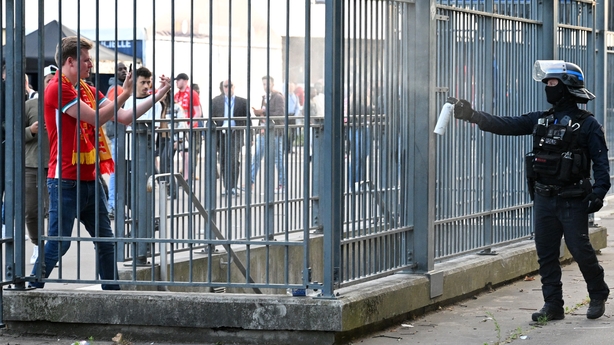Thirty-four years on from the Hillsborough disaster hundreds are still struggling with the trauma but a Liverpool support group is helping to save the lives of people who feel they have reached the end of the road.
Timely interventions by the Hillsborough Survivors Support Alliance (HSA) have prevented a number of attempted suicides while also providing therapy for those severely affected by the events at that fateful FA Cup semi-final at Sheffield Wednesday's ground in 1989 which resulted in 97 deaths.
Monthly meetings, WhatsApp groups and even activism all help in the healing process but HSA chairman Peter Scarfe admits the fallout from last summer's Champions League final, where chaotic scenes saw thousands of Liverpool fans involved in dangerous congestion before being tear-gassed by police, has created a whole new wave of problems.
"We fund-raise to pay for people to go for private, bespoke therapy, and the success rate is really high," he told the PA news agency.
"We are doing some good stuff. But then of course what happened at Stade de France we then had to set up a sub-group and have managed to send several people for therapy for that as well because it retriggered a hell of a lot of people.
"Stade de France was almost a carbon-copy of what happened at Hillsborough and there are so many things you can relate from one to the other.
"It is known people took their own lives after being retriggered after what happened at Stade de France."
The HSA was set up in 2019 to provide mental health support for those who were struggling with the impact Hillsborough has had on them.
More than 150 people have accessed therapy through the group and it is estimated around 100 people are now no longer involved because they have found a way to move on with their lives.
"People are changing their lives and the stories we are getting are unbelievable and really heart-warming to hear people moving forward with their lives," added Scarfe.
However, at the other end of the scale are those who cannot find a way to get past the trauma and Saturday's anniversary of the disaster is likely to produce another pressure point.
"You hear about people taking their own lives and attempts to take their own lives but they want peace. They have gone through so much, they are just looking for it to end," said Scarfe.
"People say 'I'm OK, it doesn't bother me that much but...." and then they start telling you about nightmares, flashbacks, that they are no good for the whole of April until after the anniversary because of the anxiety and anger levels.
"We've had direct intervention. We are definitely saving lives."

Hillsborough survivor Tony O'Neil thought he had developed a successful coping mechanism to deal with the horrors he saw in the Leppings Lane end.
But events at the Champions League final triggered post-traumatic stress and he reached out the group for help.
"The triggers to Hillsborough were just there. It was more the panicking of people around me.
"I came home and was down, low on energy, and spent three or four weeks de-motivated and lethargic.
"After a few weeks I realised there was something more serious going on so I went to my GP and was pretty much diagnosed with depression and post-traumatic stress related to Stade de France.
"I was put on some really serious anti-depressants which didn't really work for me and then put on a waiting list for counselling.
"I sat there thinking 'What am I going to do, I can't carry on like this?'.
"Going to the first meeting was terrifying. I'd not been out of the house for three months but I met all these people and it was an instant thing that I felt a connection with them.
"My concern with joining was it was going to be one of those sit-around groups where nothing gets done but what has really engaged me is they get heavily involved in things like the tragedy chanting (campaign) but also any aspect to do with Liverpool supporters going to games and their wellbeing.
"We are absolutely concerned that people who are engaged with the group is only the tip of the iceberg, there are potentially hundreds or thousands of other people out there and we need to make sure they are OK and are coping with it."
Helplines:
Aware | aware.ie | 1800 80 48 48 | supportmail@aware.ie
Jigsaw | jigsaw.ie | 01 472 7010 | help@jigsaw.ie

